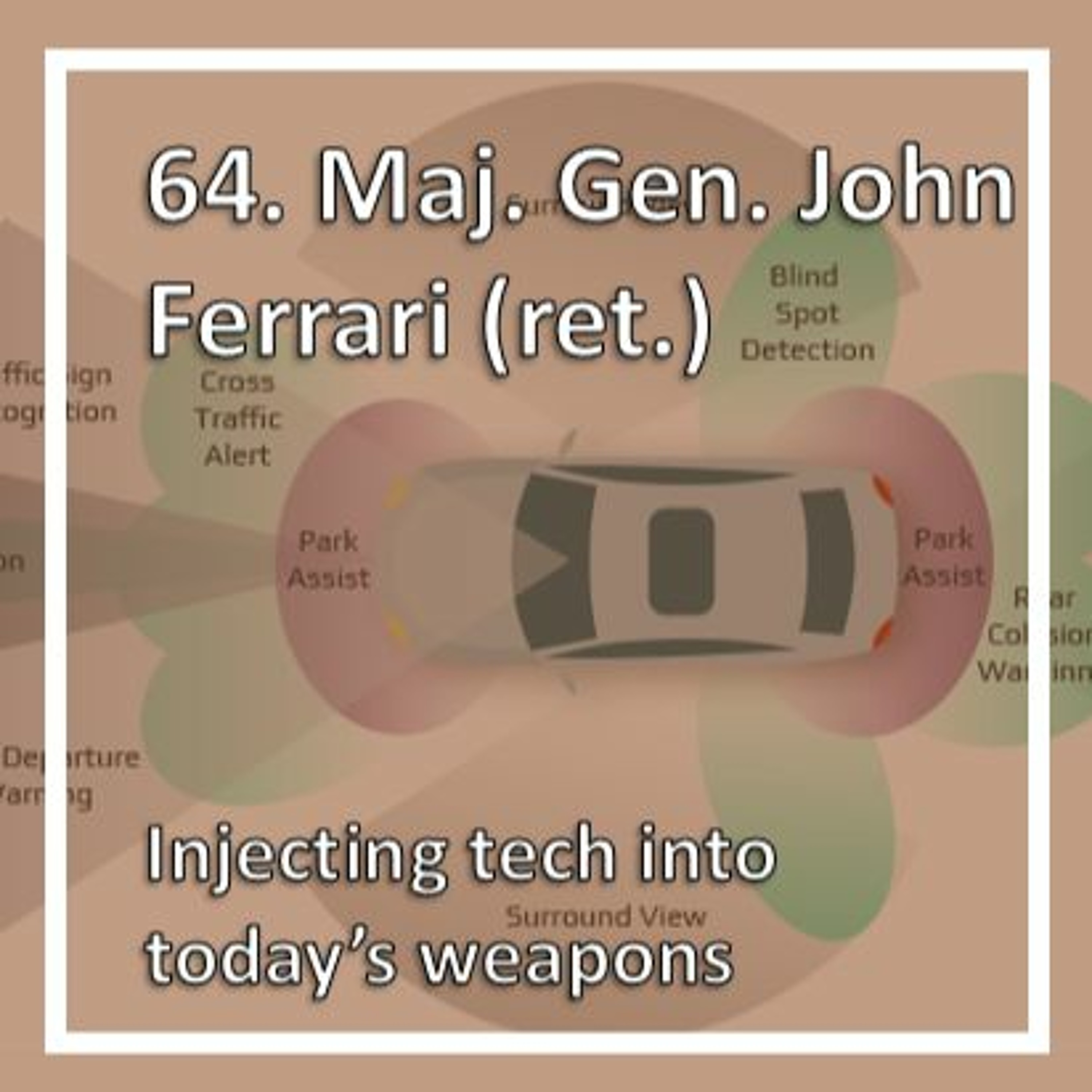
Injecting tech into today's weapons with John Ferrari
 2021-12-14
2021-12-14
Download
Right click and do "save link as"
I was pleased to have John Ferrari join me on the Acquisition Talk podcast to discuss a wide range of issues facing DoD's ability to field game-changing technologies in an era of strategic competition. He recently retired from the Army as a Major General and director of program analysis and evaluation at the G8. He is now a non-resident senior fellow at the American Enterprise Institute and Chief Financial Officers of QOMPLX, a data analytics and cybersecurity firm. We touch on:
- The impact of inflation on defense
- How the Army IVAS HoloLens program shows the future of acquisition
- Ways for organizing JADC2 and interoperability
- The challenges of running DoD on PowerPoints and disjointed IT systems
- Whether new entrants can scale in defense without suing the government
In the episode, John argues that DoD's process looks to replace existing "legacy" platforms with newer versions of the same thing: aircraft, ships, ground vehicles, satellites, etc. This focus on the future leads to a dearth of experimentation today, leading to poor choices on those "next-gen" platforms. Instead, he argues that so-called legacy systems should be used as experimental test-beds for integrating new technologies.
For example, outfitting a navy ship with fiber optics and 5G, deploying a commercial-based operating system, and allowing nontraditionals to quickly deliver capabilities against that. Another example is the Army's JLTV program, which is basically a small MRAP and while it met its requirement from 2012, has none of the new technologies widely available in the auto-industry like anti-lock breaks and backup cameras, not to mention a suite of sensors and automated software updates found in a Tesla.
DoD doesn't have decades to move towards military technologies that have caught up with the 21st century. "If you're building new systems and it takes you 30 or 40 years to get there, rather than taking commercial technology today and embedding it in the current systems, you'll never get there."
While the Secretary of Defense can accelerate this move towards rapid experimentation and adoption, it takes his personal attention to each and every project. That cannot scale. The system can only move as fast as trust allows, and since the 1970s there has been a major breakdown in trust between the executive and legislative branches. John argues that information technology provides an opportunity to build back trust, similar to the way parents have learned to trust putting their child into an Uber because they can track location, see the drive's profile, and so forth.
This podcast was produced by Eric Lofgren. You can follow us on Twitter @AcqTalk and find more information at https://AcquisitionTalk.com.
view more
More Episodes
NatSec News: Nov. 11, 2022
 2022-11-17
2022-11-17
 2022-11-17
2022-11-17
NatSec News: Nov 1, 2022
 2022-11-02
2022-11-02
 2022-11-02
2022-11-02
NatSec News: Oct 25, 2022
 2022-10-26
2022-10-26
 2022-10-26
2022-10-26
NatSec News: Sep. 27, 2022
 2022-09-28
2022-09-28
 2022-09-28
2022-09-28
NatSec News: Sep. 13, 2022
 2022-09-14
2022-09-14
 2022-09-14
2022-09-14
NatSec News: Aug 19 2022
 2022-08-19
2022-08-19
 2022-08-19
2022-08-19
NatSec News: Aug. 8, 2022
 2022-08-03
2022-08-03
 2022-08-03
2022-08-03
NatSec News: July 26, 2022
 2022-07-27
2022-07-27
 2022-07-27
2022-07-27
NatSec News: July 14, 2022
 2022-07-15
2022-07-15
 2022-07-15
2022-07-15
NatSec News: June 28, 2022
 2022-06-29
2022-06-29
 2022-06-29
2022-06-29
012345678910111213141516171819
Create your
podcast in
minutes
- Full-featured podcast site
- Unlimited storage and bandwidth
- Comprehensive podcast stats
- Distribute to Apple Podcasts, Spotify, and more
- Make money with your podcast
It is Free
- Privacy Policy
- Cookie Policy
- Terms of Use
- Consent Preferences
- Copyright © 2015-2024 Podbean.com





